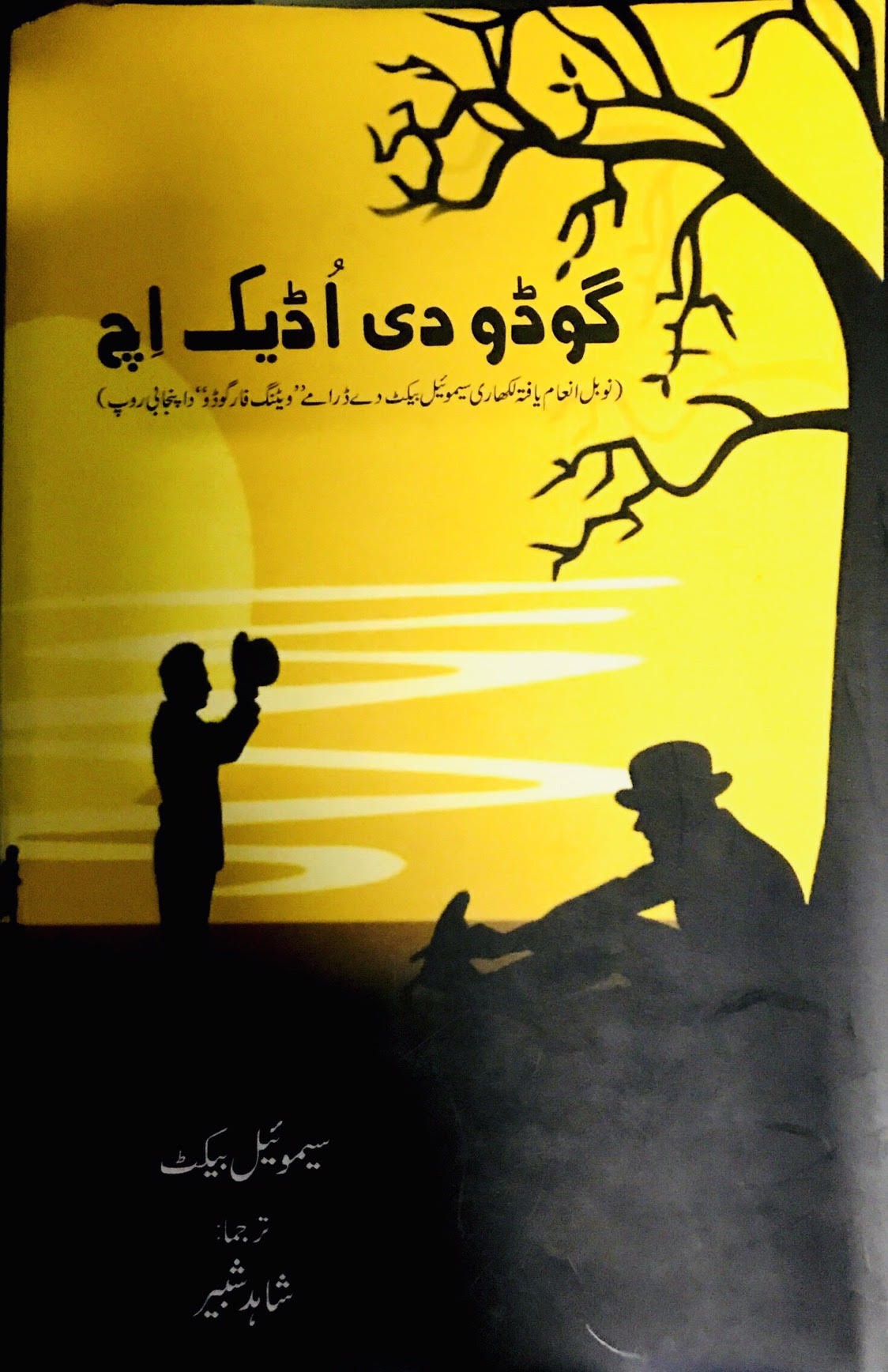
Shahid Shabbir’s Punjabi translation of Beckett’s Waiting for Godot -- through the linguistic lens of Bulleh Shah -- is everything one would want it to be

On September 24, 1967, Martin Esslin wrote in his review of Samuel Beckett’s Waiting for Godot: "There is in Beckett’s work a totally uncompromising determination always to face the worst about man and his nature, never to fall for cheap consolations; never to accept euphemisms, any false hope". Esslin knew that there was much more in the tragicomedy to offer than a mere presentation of ‘gloom and doom’.
The non-traditional structural and thematic concerns of the play became the reasons for its apparent dismissal and consequently for its longtime acceptance and relevance on all three, literary, social and philosophical, levels. The two-act nonlinear play, with all male characters, involves an incoherent plot with tedious repetition of phrases and actions. Waiting for an ambiguous figure Godot the characters, Estragon and Vladimir, reveal layers of ennui supported by significantly meaningless actions and dialogues.
In the tenth century Ireland, Samuel Beckett highlighted the core issues of human nature through the "Theatre of the Absurd" as termed by Martin Esslin in his article, "A Night at San Quentin" (1957). Waiting for Godot, first written in French, was translated into English by Samuel Beckett himself.
In another landscape of the seventeenth century India, Bulleh Shah endeavours to deal with the fundamentals of human existence through his poetic verse, written in his mother tongue Punjabi. A comparative analysis of Beckett and Bulleh Shah’s work may bear expected results of two inquisitive minds’ questioning the established social, literary, philosophic and theological ideals and idols.
In 2019, Shahid Shabbir, a lawyer by profession, takes it up to present Samuel Beckett’s Waiting for Godot through the linguistic lens of Bulleh Shah. The translated version titled as Godot di Udeek Vich brings the seminal text of the "Theatre of the Absurd" for indigenous Punjabi readership. The cover designed by Unza Minhas requires not only critical attention but aesthetic appreciation as well. The cover nearly captures the setting directions given by the director Stanley Weese as the "antithesis of the Garden Eden". A deserted tree, Estragon or Arpan struggling to take his shoe off and Vladimir or Waris staring in the abyss of his empty hat. Against the yellow and black background foreshadows the haunting struggle characters would undergo within the text while they continue to wait for Godot.
Shabbir, in the author’s note, acknowledges the idea that the play is not centred on the ambivalent Godot, however, it is about the bigger yet crude human condition; the wait and the exploration. He also quotes Bulleh Shah’s verses in order to appropriate the universal appeal of Beckettian concepts. The translated version of Waiting for Godot, replicates the structure of the original version, however, for conceptual clarity of Punjabi readership Shabbir has indigenised the names of the characters. For instance, Estragon and Vladimir in the original version are named Arpan and Waris, respectively, in the translated version. Pozzo and Lucky have been indigenised by Taafu and Bakhtu. Godot, however, enjoys the status of being a constant even in the translated version.
Despite indigenisation of the names, the translated version remains successful in keeping the message of the original play intact. In fact, it adds a new dimension to the existing body of the text. If analysed according to Rauf Tahir’s reference to ‘a good translation’ which ‘must preserve the form, content and the message of the source text’, Shahid Shabbir’s Punjabi translation of Beckett’s Waiting for Godot provides a very original yet challenging basis for a local adaptation. Lastly, the rendition of Bulleh Shah’s poetic verses through Beckettian characters provides a thought-provoking visual spectacle for the reader and, of course, the translator deserves the credits for this achievement.
Godot Dee Udeek Vich
(Translation: Waiting for Godot)
Author: Shahid Shabbir
Publisher: Faizaan Publication, Lahore
Pages:
Price: 280